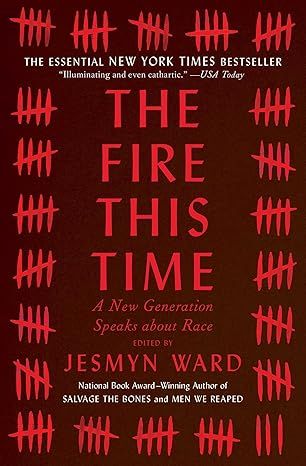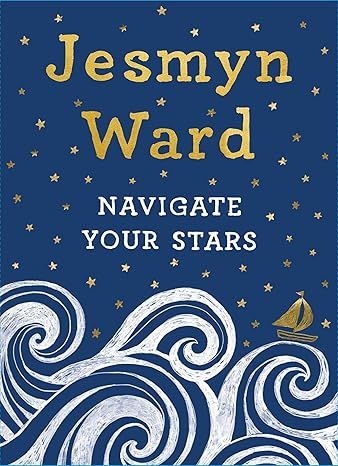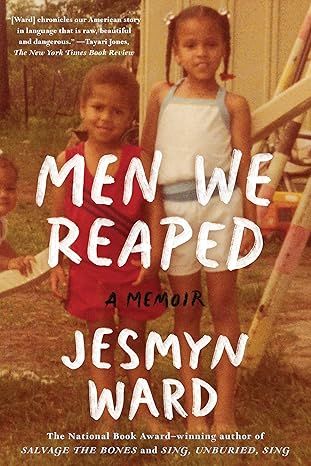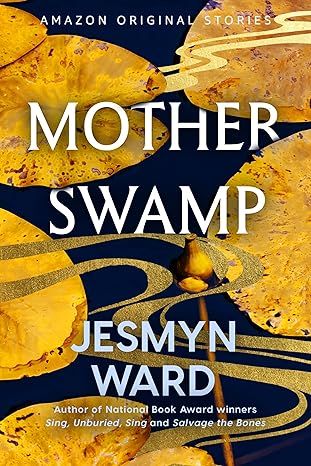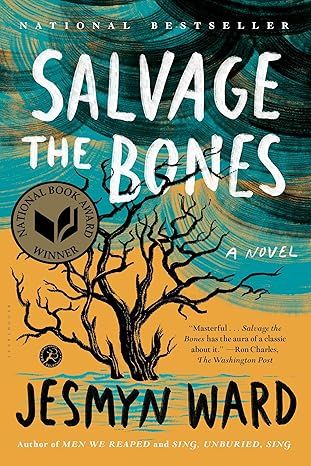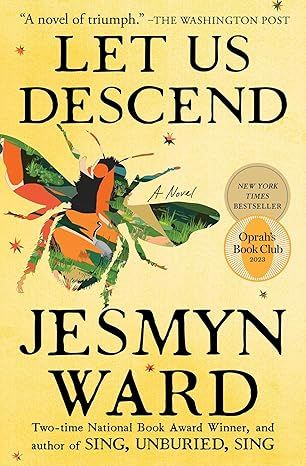The Fire This Time: A New Generation Speaks about Race
4.7
-
734 ratings
The New York Times bestseller, these groundbreaking essays and poems about race—collected by National Book Award winner Jesmyn Ward and written by the most important voices of her generation—are “thoughtful, searing, and at times, hopeful. The Fire This Time is vivid proof that words are important, because of their power to both cleanse and to clarify” (USA TODAY).
In this bestselling, widely lauded collection, Jesmyn Ward gathers our most original thinkers and writers to speak on contemporary racism and race, including Carol Anderson, Jericho Brown, Edwidge Danticat, Kevin Young, Claudia Rankine, and Honoree Jeffers. “An absolutely indispensable anthology” (Booklist, starred review), The Fire This Time shines a light on the darkest corners of our history, wrestles with our current predicament, and imagines a better future.
Envisioned as a response to The Fire Next Time, James Baldwin’s groundbreaking 1963 essay collection, these contemporary writers reflect on the past, present, and future of race in America. We’ve made significant progress in the fifty-odd years since Baldwin’s essays were published, but America is a long and painful distance away from a “post-racial society”—a truth we must confront if we are to continue to work towards change. Baldwin’s “fire next time” is now upon us, and it needs to be talked about; The Fire This Time “seeks to place the shock of our own times into historical context and, most importantly, to move these times forward” (Vogue).
Kindle
$12.99
Available instantly
Audiobook
$0.00
with membership trial
Hardcover
$17.94
Paperback
$9.39
Ships from
Amazon.com
Payment
Secure transaction
ISBN-10
1501126350
ISBN-13
978-1501126352
Print length
240 pages
Language
English
Publisher
Scribner
Publication date
June 19, 2017
Dimensions
5.5 x 0.7 x 8.38 inches
Item weight
2.31 pounds
Product details
ASIN :
B01B1U2ZMS
File size :
6915 KB
Text-to-speech :
Enabled
Screen reader :
Supported
Enhanced typesetting :
Enabled
X-Ray :
Enabled
Word wise :
Enabled
Editorial reviews
"[A] stirring anthology that takes more cues from Baldwin than just its title ... every poem and essay in Ward’s volume remains grounded in a harsh reality that our nation, at large, refuses fully to confront." —The New York Times Book Review
"[A] powerful book ... alive with purpose, conviction and intellect." —The New York Times
"With this gorgeous chorus — Ward has done the same [as her ancestors]: she has created a world, a space, the one she, herself, was seeking. A new type of belonging, a new place to belong, is exactly what she has given us." —L.A. Review of Books
"[W]hat The Fire This Time does best is to affirm the power of literature and its capacity for reflection and imagination, to collectively acknowledge the need for a much larger conversation, to understand these split second actions in present, past, and future tense, the way that stories impel us to do. This is a book that seeks to place the shock of our own times into historical context and, most importantly, to move these times forward." —Vogue
"The Fire This Time is a powerful, rewarding read that gets to the heart of what it means to be black in America today." —The Root
“A half century ago James Baldwin, the prophet in the American wilderness, delivered The Fire Next Time—as complex a reckoning with race, morality and human nature as we have seen. Jesmyn Ward has pulled together in this collection you now hold the incisive, sage, angry and deeply complex voices of a new generation, responding to many of the same questions that confronted us in 1963. To Baldwin's call we now have a choral response—one that should be read by every one of us committed to the cause of equality and freedom.” —Jelani Cobb, historian
“In 1963, we were poised on a precipice, intellectually, spiritually, politically primed for the change we knew had to come. Now, some half century later, we are again at the precipice. We are dismayed and disheartened to find ourselves here, aghast that the rules and players have changed but the game, somehow, is the same. What do we do, this post Civil Rights generation, in the face of the same injustice, dressed in different clothes, coded in different laws? In The Fire This Time, a new generation of black writers speak with the ‘fierce urgency of now.’” —Ayana Mathis, novelist
“Fires destroy things…burns them up…makes ashes for us all…But fires also keep us warm…give us a glow to sit by…to tell ancestry stories to the children against the rhythmic crackle of history…to make love to against the glow. The generation of segregations gave us The Fire Next Time…we broke down those walls…The generation after segregation gives us the water to mix with the ashes to build…something…anything all…in the words of Margaret Walker…our own. This is a book to pick up and tuck under our hearts to see what we can build.” —Nikki Giovanni, poet
"Timely contributions to an urgent national conversation." —Kirkus Reviews
"An absolutely indispensable anthology." —Booklist (starred review)
"Ward's remarkable achievement is the gift of freshly minted perspectives on a tale that may seem old and twice told. Readers in search of conversations about race in America should start here." —Publishers Weekly (starred review)
"Groundbreaking." —Library Journal
Read more
Sample
Introduction
JESMYN WARD
After George Zimmerman shot and killed Trayvon Martin on February 26, 2012, I took to Twitter. I didn’t have anywhere else to go. I wanted to hear what others, black writers and activists, were thinking about what happened in Sanford, Florida. Twitter seemed like a great social forum, a virtual curia, a place designed to give us endless voice in declarations of 140 characters or fewer.
I found the community I sought there. I found so many people giving voice to my frustration, my anger, and my fear. We shared news and updates and photos, anything we could find about Trayvon. During that time, I was pregnant, and I was revising a memoir about five young black men I’d grown up with, who all died young, violent deaths. Every time I logged in or read another article about Trayvon, my unborn child and my dead brother and my friends sat with me. I imagined them all around me, our faces long with dread. Before Zimmerman was acquitted of second-degree murder and manslaughter in July 2013, I suspected Trayvon’s death would be excused. During this period, I returned often to the photo of Trayvon wearing a pale hoodie. As I gazed on his face—his jaw a thin blade, his eyes dark and serious, too big in the way that children’s eyes are—I saw a child. And it seemed that no one outside of Black Twitter was saying this: I read article after article that others shared on Twitter, and no major news outlet was stating the obvious. Trayvon Martin was a seventeen-year-old child, legally and biologically; George Zimmerman was an adult. An adult shot and killed a child while the child was walking home from a convenience store where he’d purchased Skittles and a cold drink. Everything, from Zimmerman stalking and shooting Trayvon to the way Trayvon was tried in the court of public opinion after his death, seemed insane. How could anyone look at Trayvon’s baby face and not see a child? And not feel an innate desire to protect, to cherish? How?
And then I realized most Americans did not see Trayvon Martin as I did. Trayvon’s sable skin and his wide nose and his tightly coiled hair signaled something quite different for others. Zimmerman and the jury and the media outlets who questioned his character with declarations like He abused marijuana and He was disciplined at school for graffiti and possessing drug paraphernalia saw Trayvon as nothing more than a wayward thug. They didn’t see him as an adult human being, either, but as some kind of ravenous hoodlum, perpetually at the mercy of his animalistic instincts. Although this was never stated explicitly, his marijuana use and adolescent mischief earned this hoodlum in a hoodie his death.
I knew that myth. It was as familiar to me as my own eyes, my own nose, my own hair, my own fragile chest. It was as familiar to me as the air I grew up in, air as dense and heavy and close and hot as the air Trayvon breathed before Zimmerman shot him. I, too, grew up in a place that could sometimes feel as limiting and final as being locked in an airtight closet, the air humid and rank with one’s own breath and panic. A place where for all the brilliant, sun-drenched summer days, there is sometimes only the absence of light: America, and the American South. A place where the old myths still hold a special place in many white hearts: the rebel flag, Confederate monuments, lovingly restored plantations, Gone with the Wind. A place where black people were bred and understood to be animals, a place where some feel that the Fourteenth Amendment and Brown v. Board of Education are only the more recent in a series of unfortunate events. A place where black life has been systematically devalued for hundreds of years.
In December 2002, my then senator, Trent Lott, attended a function honoring the outgoing Senator Strom Thurmond, who is famous for opposing the Civil Rights Act of 1957 so strenuously he conducted the longest lone filibuster ever, one that lasted twenty-four hours and eighteen minutes. At this event, Lott, who is from a small town on the Mississippi Gulf Coast around twenty-five miles from mine, said: “We’re proud of it [voting for Thurmond in the 1948 presidential election]. And if the rest of the country had followed our lead, we wouldn’t have had all these problems over all these years, either.” It was dismaying to hear this, to see what those in power thought of people like me, but it wasn’t a surprise. After all, when I participated in Presidential Classroom in Washington, D.C., I, along with around five of my high school classmates, met Senator Trent Lott. My schoolmates were white. I was not. Trent Lott took a whip as long as a car off his office table, where it lay coiled and shiny brown, and said to my one male schoolmate who grinned at Lott enthusiastically: Let’s show ’em how us good old boys do it. And then he swung that whip through the air and cracked it above our heads, again and again. I remember the experience in my bones.
I know little. But I know what a good portion of Americans think of my worth. Their disdain takes form. In my head, it is my dark twin. Sometimes I wonder which of us will be remembered if I die soon, if I suffocate in that closet. Will I be a vicious menace, like Trayvon Martin? An unhinged menace, like Tamir Rice? A monstrous menace, like Mike Brown? An unreasonable menace, like Sandra Bland? A sly menace, like Emmett Till? I imagine I will be as black and fetid as the horde at Scarlett’s heels, crowding her wagon, thundering to rip it apart, wheel by rivet.
Replace ropes with bullets. Hound dogs with German shepherds. A gray uniform with a bulletproof vest. Nothing is new.
• • •
I needed words. The ephemera of Twitter, the way the voices of the outraged public rose and sank so quickly, flitting from topic to topic, disappointed me. I wanted to hold these words to my chest, take comfort in the fact that others were angry, others were agitating for justice, others could not get Trayvon’s baby face out of their heads. But I could not. The nature of the application, even the nature of the quality journalism of the time, with so much of it published online, meant that I couldn’t go to one place for it all. I couldn’t fully satisfy my need for kinship in this struggle, commiserate with others trying to find a way out of that dark closet. In desperation, I sought James Baldwin.
I read Baldwin’s essay “Notes of a Native Son” while I was in my mid-twenties, and it was a revelation. I’d never read creative nonfiction like Baldwin’s, never encountered this kind of work, work that seemed to see me, to know I needed it. I read it voraciously, desperate for the words on the page. I needed to know that someone else saw the myriad injustices of living while black in this country, that someone so sharp and gifted and human could acknowledge it all, and speak on it again and again. Baldwin was so brutally honest. His prose was frank and elegant in turn, and I returned to him annually after that first impression-forming read. Around a year after Trayvon Martin’s death, a year in which black person after black person died and no one was held accountable, I picked up The Fire Next Time, and I read: “You can only be destroyed by believing that you really are what the white world calls a nigger. I tell you this because I love you, and please don’t you ever forget it.” It was as if I sat on my porch steps with a wise father, a kind, present uncle, who said this to me. Told me I was worthy of love. Told me I was worth something in the world. Told me I was a human being. I saw Trayvon’s face, and all the words blurred on the page.
It was then that I knew I wanted to call on some of the great thinkers and extraordinary voices of my generation to help me puzzle this out. I knew that a black boy who lives in the hilly deserts of California, who likes to get high with his friends on the weekend and who freezes in a prickly sweat whenever he sees blue lights in his rearview, would need a book like this. A book that would reckon with the fire of rage and despair and fierce, protective love currently sweeping through the streets and campuses of America. A book that would gather new voices in one place, in a lasting, physical form, and provide a forum for those writers to dissent, to call to account, to witness, to reckon. A book that a girl in rural Missouri could pick up at her local library and, while reading, encounter a voice that hushed her fears. In the pages she would find a wise aunt, a more present mother, who saw her terror and despair threading their fingers through her hair, and would comfort her. We want to tell her this: You matter. I love you. Please don’t forget it.
The Fire Next Time is roughly divided into two parts: a letter to Baldwin’s nephew, which looks forward to the future, and an essay about religion and the Nation of Islam, which concerns itself with Baldwin’s past and present. I initially thought that The Fire This Time would be divided into three parts, roughly inspired by Baldwin’s chronological division: essays or poems about the past, deemed legacy, essays or poems about the present, labeled reckoning, and essays or poems about the future, or jubilee, and all of them would wrestle with the specters of race and history in America, and how those specters are haunting us now. But as the pieces of work my editor and I solicited came in, I realized that the structure I envisioned for the work would not be as tidy as I thought. But race in the United States is not a tidy matter. Only three of the submitted pieces explicitly referenced the future. Most of them were concerned with the past and the present. And that told me two things. First, it confirmed how inextricably interwoven the past is in the present, how heavily that past bears on the future; we cannot talk about black lives mattering or police brutality without reckoning with the very foundation of this country. We must acknowledge the plantation, must unfold white sheets, must recall the black diaspora to understand what is happening now. Second, it reveals a certain exhaustion, I think. We’re tired. We’re tired of having to figure out how to talk to our kids and teach them that America sees them as less, and that she just might kill them. This is the conversation we want to avoid. We’re tired of feeling futile in the face of this ever-present danger, this omnipotent history, predicated as this country is, founded as this country was, on our subjugation. But the pieces in this work that do invoke the future—Daniel José Older’s letter to his wife and future child, Natasha Trethewey’s poem about the many planes on which time exists, and Edwidge Danticat’s essay exploring the idea that people of the black diaspora are refugees—help me to believe that I might be able to have that conversation with my child in the future. These pieces give me words that I might use to push past the fear and exhaustion and speak to my daughter, my nieces and nephews. This work helps me to believe that this is worthwhile work, and that our troubling the water is worthy.
If I were smarter, perhaps I wouldn’t say this, but I attest to this because I feel it: all these essays give me hope. I believe there is power in words, power in asserting our existence, our experience, our lives, through words. That sharing our stories confirms our humanity. That it creates community, both within our own community and beyond it. Maybe someone who didn’t perceive us as human will think differently after reading Garnette Cadogan’s essay on the black body in space, or after reading Emily Raboteau’s work on urban murals. Perhaps after reading Kiese Laymon’s essay on black artists and black love and OutKast, or after reading Mitchell S. Jackson’s piece on composite fathers, a reader might see those like me anew. Maybe after reading Rachel Kaadzi Ghansah’s essay on Baldwin or Kevin Young’s hilarious essay about Rachel Dolezal and what it means to be black, a reader might cry in sympathy and then rise to laughter, and in doing so, feel kinship.
At the end of The Fire Next Time, Baldwin writes:
This past, the Negro’s past, of rope, fire, torture, castration, infanticide, rape; death and humiliation; fear by day and night, fear as deep as the marrow of the bone; doubt that he was worthy of life, since everyone around him denied it; sorrow for his women, for his kinfolk, his children, who needed his protection, and whom he could not protect; rage, hatred, and murder, hatred for white men so deep that it often turned against him and his own, and made all love, all trust, all joy impossible—this past, this endless struggle to achieve and reveal and confirm a human identity, human authority, yet contains, for all its horror, something very beautiful . . . people who cannot suffer can never grow up, can never discover who they are. . . . Everything now, we must assume, is in our hands; we have no right to assume otherwise. If we—and now I mean the relatively conscious whites and the relatively conscious blacks, who must, like lovers, insist on, or create, the consciousness of others—do not falter in our duty now, we may be able, handful that we are, to end the racial nightmare, and achieve our country, and change the history of the world. If we do not dare everything, the fulfillment of that prophecy, re-created from the Bible in song by the slave, is upon us: God gave Noah the rainbow sign, No more water, the fire next time!
I hope this book makes each one of you, dear readers, feel as if we are sitting together, you and me and Baldwin and Trethewey and Wilkerson and Jeffers and Walters and Anderson and Smith and all the serious, clear-sighted writers here—and that we are composing our story together. That we are writing an epic wherein black lives carry worth, wherein black boys can walk to the store and buy candy without thinking they will die, wherein black girls can have a bad day and be mouthy without being physically assaulted by a police officer, wherein cops see twelve-year-old black boys playing with fake guns as silly kids and not homicidal maniacs, wherein black women can stop to ask for directions without being shot in the face by paranoid white homeowners.
I burn, and I hope.
Read more
About the authors
Jesmyn Ward
Jesmyn Ward received her MFA from the University of Michigan and has received the MacArthur Genius Grant, a Stegner Fellowship, a John and Renee Grisham Writers Residency, and the Strauss Living Prize. She is the winner of two National Book Awards for Fiction for Sing, Unburied, Sing (2017) and Salvage the Bones (2011). She is also the author of the novel Where the Line Bleeds and the memoir Men We Reaped, which was a finalist for the National Book Critics Circle Award and won the Chicago Tribune Heartland Prize and the Media for a Just Society Award. She is currently an associate professor of creative writing at Tulane University and lives in Mississippi.
Read more
Reviews
Customer reviews
4.7 out of 5
734 global ratings
Ben Mattlin
5
A dynamite collection of tinglingly good work
Reviewed in the United States on September 9, 2016
Verified Purchase
A thoughtful, moving, and important collection of essays, poems, and other heartfelt reactions to the current state of race relations in the U.S., this should become required reading for all civics and American literature scholars. (I mean that as a compliment.) As a middle-aged white dude myself, I didn't get all the pop-culture references and some of the African-American dialectical flourishes, but I've come away from this book with a new, deeper understanding of what "black lives matter" truly means (in fact, that could've been an alternate title for this book), for James Baldwin, and for the real life experiences of people I think I know but with whom I can never fully identify. Yet the issues and perspectives raised here are universal, expressed with a righteous pride. What's more, it's a pleasure to spend a time in the company of such great minds and talents.
Read more
7 people found this helpful
Carl W.
5
A Worthy Sucessor to James Baldwin's ground-breaking work
Reviewed in the United States on September 8, 2016
Verified Purchase
James Baldwin is having a well-deserved moment, and Jesmyn Ward is gutsy to title her book so audaciously as to echo Baldwin's most famous essay.
To her credit, nearly every essay in this book lives up to the spirit of Baldwin with strong, evocative prose and, occasionally, poetry, from some of Ward's generation of fine, fine writers. I thought about naming those essays I liked best but am having a hard time, although Honore Fanzine Jeffers's work about Phillis Wheatley's husband and Edwidge Danticat's closing essay are both memorable, while Wendy Walters's reflection on the discovery of a slave graveyard and her haunting and ambivalent reaction to it may be the finest piece of the collection. The only essay that disappointed was Kevin Young's somewhat flippant take on the Rachel Dolezal situation; given the context of this book with its otherwise exceptional writing, I had hoped for something with greater insight into one of the more bizarre race-related stories of the past few years.
Although I consider myself a pretty well-read person, I had not heard of many of these contributors nor have I read much of their works. I am making my way through Baldwin, who must be the finest essayist on any topic in the second half of the twentieth century. Given what I have seen here, I think Ms. Ward has identified some of the finest writers in our new century.
I can see this book almost immediately becoming required reading on race studies, but it deserves the widest possible readership. And, when you buy it, pick up "The Fire Next Time" as well. Ms. Ward would want you to.
Read more
4 people found this helpful
Ronnie
5
A 21st century update to Baldwin's s
Reviewed in the United States on August 6, 2016
Verified Purchase
Don't read this book if you disagree with Black Lives Matter.
I loved every entry; and I am probably old enough to have witnessed every event chronicled in these pages from seeing Emmitt Till's photo in Jet Magazine in 1954 to today's unending stream of cell phone videos of Black people being murdered .
What I found most refreshing, was that the rage was tempered with resolve to make a differences. That the spirit of triumph replaces the historical song of despair. These young folk give me hope for a future full of possibility.
Read more
7 people found this helpful
Top Jesmyn Ward titles
View allSimilar Books
Best sellers
View all
The Tuscan Child
4.2
-
100,022
$8.39

The Thursday Murder Club: A Novel (A Thursday Murder Club Mystery)
4.3
-
155,575
$6.33

Sapiens: A Brief History of Humankind
4.6
-
140,302
$13.49

The Butterfly Garden (The Collector, 1)
4.3
-
88,556
$9.59

Things We Hide from the Light (Knockemout Series, 2)
4.4
-
94,890
$11.66

The Last Thing He Told Me: A Novel
4.3
-
154,085
$2.99

The Perfect Marriage: A Completely Gripping Psychological Suspense
4.3
-
143,196
$9.47

The Coworker
4.1
-
80,003
$13.48

First Lie Wins: A Novel (Random House Large Print)
4.3
-
54,062
$14.99

Mile High (Windy City Series Book 1)
4.4
-
59,745
$16.19

Layla
4.2
-
107,613
$8.99

The Locked Door
4.4
-
94,673
$8.53
